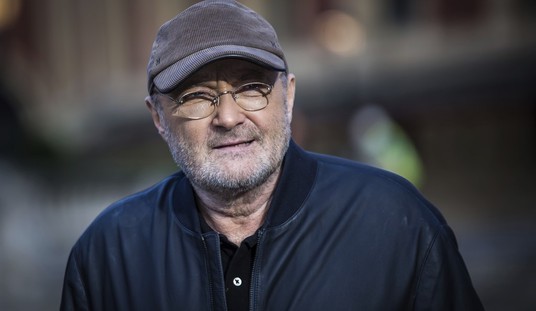The AMC-TV drama series Hell on Wheels (Sundays, 10 p.m. EST) takes a rather cynical view of the building of the first transcontinental railroad across the United States, but it would be a mistake to dismiss it because of that. The points the show makes about the gigantic infrastructure project are quite defensible, and the picture Hell on Wheels draws of American society in the post-Civil War era, though exaggerated for dramatic purposes, has useful parallels to contemporary issues.
To be sure, in some ways the show pays obeisance to modern political and cultural clichés about the nation’s past. Predictably, the United States in 1865 is shown as dirty and corrupt, and life for many is depicted as short, brutal, ugly, dirty, and meaningless. The railroad encampment is a cesspool rife with drunkenness, violence, and sexual license. Although no longer slaves, all the blacks we see are impoverished manual laborers.
Similarly, the businessman leading the building of the railroad is no Gary Cooper. Expertly played by Colm Meaney, Thomas “Doc” Durant is physically unattractive, corrupt, greedy, cynical, and selfish, with no nuances in the early episodes and few enough as the series progresses.
The Christian church is largely portrayed as sinister and weird: a pastor in a debate with a prostitute (which he loses, of course) is shown from a strange, disorienting camera angle. A murder in a confessional opens the first episode. A baptism in a river is shown in an intensely disturbing way, as the individual being baptized is held under water for what seems an inordinately long and in fact life-threatening amount of time. This all too obviously emphasizes the power of the preacher who is holding him under water while the dirty, ragtag congregation sings in ugly disharmony. These film tricks all tend to make the Christian church highly unattractive.
The baptism scene in particular seems more than a little insensitive, portraying one of the Christian sacraments as if it were a brutal assertion of power — one cannot imagine the producers doing the same with Muslim or Hindu rituals. All of the aforementioned fits with a view of America’s history as a long string of perfidy, fanaticism, greed, and injustice.
Fortunately, Hell on Wheels producers Joe and Tony Gayton don’t leave it at that. Instead, they convey numerous story elements that contradict the cynical contemporary view of the nation’s history in very interesting and important ways. In the very first episode, for example, common views of the history of American race relations and the origins of the War Between the States are subverted. A northerner is cruel to the former slaves who are working on the railroad, whereas the protagonist, a southerner and former slaveholder, is sympathetic to them and treats them fairly. Later we find out that even though he fought for the Confederacy, the Southerner had already freed his own slaves and suffered privation in order to pay them wages for their services.
Similarly, Sherman’s March and the Union’s conduct of the war in general are depicted as vicious and unconscionable, whereas the Southern cause is characterized as a matter of honor, which the characters — who would know, of course — clearly accept as true. This, in fact, drives protagonist Cullen Bohannon’s story and hence is further emphasized in the narrative: his wife was murdered by marauding Union soldiers while he was off at war. A further irony is that she was a transplanted Northerner who had, as mentioned, persuaded him to free his slaves and take them on as hired laborers.
Ex-slaves in the North, by contrast, are shown as living under awful conditions that make a mockery of the Emancipation Proclamation, as a bitter former slave, Elam Ferguson (played by rapper-actor Common), observes in conversation with Bohannon (Anson Mount). In a later episode, Ferguson foreshadows the argument that the black educator and political leader Booker T. Washington would make near the end of the century: that blacks shouldn’t wait around for political solutions requiring equal treatment from whites, but could only ensure their own betterment through hard work, competition, and entrepreneurship.
That exchange between the show’s two most prominent characters exemplifies the nuanced view of business the series conveys. Although railroad owner Durant is by no means an attractive character, the producers give him his due. At the end of the very first episode, Durant makes a strong case for free markets, clearly conveying Adam Smith’s point that markets take the selfish behavior of individuals and turn it to the good of others. Without people like him, Durant states tartly, the railroad would not be built at all.
Government, by contrast, is almost exclusively a force for evil in the story. It does nothing to keep order or provide needed infrastructure — as noted earlier, the encampment is a sea of mud. In an amusing moment, the Indian Chief Many Horses (Wes Studi) says of the construction encampment: “I have never seen such a dark, filthy place.” The minimal social order there is sustained by the railroad’s head of security, a tall, hard-bitten, middle-aged Scandinavian known only as The Swede.
The Swede is cruel and corrupt, but even he is given some nuances and understanding: he explains that he developed his cynical, dog-eat-dog attitude while imprisoned in horrible conditions in the Andersonville POW camp during the war. We may, of course, doubt the truth of his claim, but the evocation of another horrible instance of government indifference and cruelty remains nonetheless.
Having obliterated the southern half of the nation, the government’s activities in the postwar era seem largely confined to displacing Indians, killing Indians, and seeking out corrupt ways of amassing wealth for the politically connected few. The economic subsidy to the railroad, for example, is shown as mainly an opportunity for corrupt politicians and business people to enrich themselves at the taxpayer-provided trough. Even here, the government is worse than the private sector. Whereas Durant is shown as doing good even as he seeks selfish ends, the one unequivocally evil character depicted in the series so far is a U.S. Senator, Jordan Crane.
The distinguished senator shows no interest whatever in the railroad except as a way of making a killing for himself through railroad stock manipulation. This sets off another interesting plot line, one with strong parallels to modern-day congressional Democrats who were recently revealed to have made big money in the stock market by making trades based on bills they knew they were about to pass. Crane threatens railroad owner Durant with prison over the latter’s misappropriation of funds, but all Crane really wants is insider information on which of two competing western rail lines he is planning to link up with. Crane spends his entire fortune on stock in the line Durant names. If you cannot anticipate how that turns out, I won’t spoil it for you.
In another historically accurate and somewhat contrarian story element, government is shown as the real instigator and of course executor of the expulsion of Indians from the Great Plains. Railroad owner Durant is certainly willing to accept the government’s help in clearing a path for his tracks in this way, but he is by no means the cause of the government’s crusade. In the very first episode, a band of Indians is shown viciously attacking a group of pioneers and slaughtering all of them except for one plucky woman, Lily Bell (Dominique McElligott) who narrowly escapes after seeing her husband killed.
After she makes her way to the railroad encampment, Rev. Cole (Tom Noonan), the local minister who was appalled by the slaughter during the war and wants to avoid bloodshed between the whites and the Indians, talks with Lily Bell about the likelihood that many innocent Indians will be killed in retaliation for the attack on her group. “Try to see the bigger picture,” he tells her. She replies, “My husband was slaughtered right in front of me. It’s a little difficult to see the bigger picture.”
The real villain here is clearly government. As Cole’s entreaty indicates, the white people in the railroad encampment want nothing but for the Indians to leave them alone, and vice versa, but the government is intent on forcing them into separate worlds. In negotiation with the leaders of the Indian tribe, the federal government offers to take care of them if they will submit to living on a reservation.
This is an obviously insulting and patronizing offer, and the viewer is clearly invited to sympathize with the tribal leaders’ disdain for the idea. The scene, however, is not presented as a condemnation of whites as racist. On the contrary, in an interesting parallel with contemporary political issues, the Indians reject the government’s offer of largesse not because of a Luddite hatred of modernity or a postmodern-like contempt for white civilization but instead out a deep respect for two fundamental principles of American life: liberty and self-reliance. They refuse the government’s offer precisely because it is un-American. The implications for the modern welfare state are evident, especially in light of Ferguson’s earlier evocation of Booker T. Washington.
Finally, even the treatment of Christianity is more nuanced than one might think at first glance. As with its suspicion of government as opposed to individuals, Hell on Wheels may suggest hostility toward the church, but it doesn’t criticize the Christian faith as held by individuals. For example, two young Irish men prominent in the story hold to their Catholic faith in a sincere, simple way, without any implicit criticism being done through the camera work or performances. Another important character, the virtuous, heroically courageous Cheyenne Indian Joseph Black Moon, is a Christian convert. The mean and murderous Swede claims to be a Christian but does not attend church and hence is at best a hypocrite, not a true Christian. Bohannon has doubts about religion, and his unhappy mien, often loutish behavior, and profound thirst for revenge on the Union soldiers who raped and killed his wife do little to make unbelief attractive.
Perhaps Rev. Cole best exemplifies the show’s characterization of religion. He gives sanctuary to Bohannon when the latter is being pursued for a murder he did not commit, yet he is surprisingly aloof toward his teenage daughter, whom he hasn’t seen in several years. This may be seen as a slam against Christianity, but it makes more sense to me as a simple acknowledgment of how difficult it is to live up to Christian ideals.
It will be interesting to see where the show goes with this theme and others over the rest of this season and into the next—AMC recently renewed it for another year. Although it’s not the kind of sweetness and light many people yearn for, Hell on Wheels is thought-provoking, basically fair-minded, and indeed rather brave at times.









Join the conversation as a VIP Member